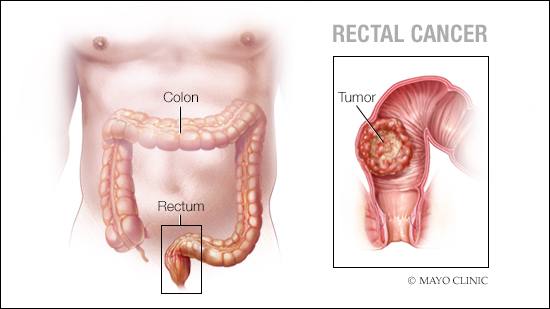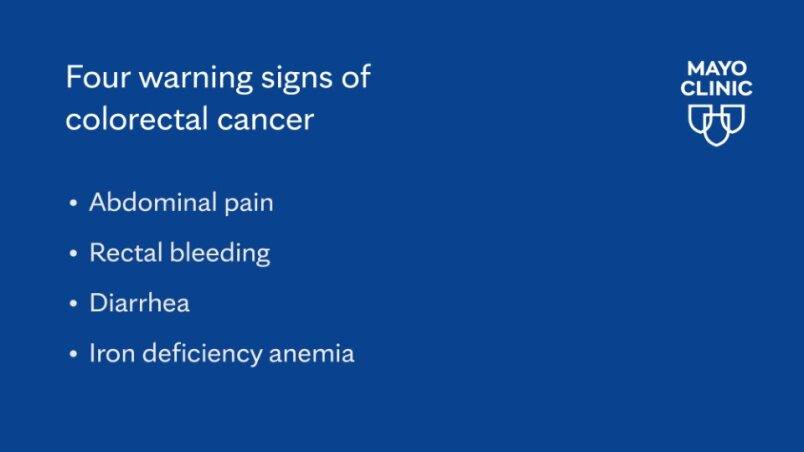
Colorectal cancer, the third-most common cancer in the U.S., has been rising among younger people for the past two decades. It is not one type of cancer but two cancers: colon cancer, which starts in the large intestine, and rectal cancer, which begins in the last part of the large intestine, known as the rectum.
Dr. Derek Ebner, a Mayo Clinic gastroenterologist, notes that colorectal cancer has been increasing in adults under age 50, particularly for rectal cancer. He says it's important to know the warning signs of colorectal cancer and to not delay medical treatment.
Journalists: Broadcast-quality video (0:59) is in the downloads at the end of this post. Please courtesy: "Mayo Clinic News Network." Read the script.
"Historically, colorectal cancer was equally divided along the colon and rectum, but particularly for those with early onset colorectal cancer — age less than 50 — we're seeing higher rates of rectal cancer among the younger onset," says Dr. Ebner.

Case of colorectal cancer has been increasing in adults under age 50, particularly for rectal cancer.
Warning signs and symptoms of colorectal cancer
Dr. Ebner says four key symptoms have been identified for people under 50 who are diagnosed with colorectal cancer.
"Abdominal pain, diarrhea, seeing blood with bowel motions, as well as iron deficiency anemia," he says.

Dr. Ebner notes that blood loss after bowel movements, even if not visibly apparent, can lead to low iron levels.
"If on a blood test, for example, we see a sign of iron deficiency, that would then prompt us to explore further," he says.
Even though it may be embarrassing, he stresses, "If you have any of those symptoms, you need to share it with a healthcare provider. That way, they can navigate those subsequent steps."
Which can lead to early treatment and better outcomes.
Reducing risks of colorectal cancer
While it's not possible to completely prevent cancer, there are ways to reduce your risks and that includes following a healthy lifestyle.
"Abiding by a healthy lifestyle is critical," says Dr. Ebner. "Following a well-rounded diet, staying physically active, for instance, perhaps can be protective. The other key, though, is just being very mindful of those symptoms, and then also underscoring the importance of screening."
- Screening: Talk to your healthcare team about colorectal cancer screening.
- Exercise: Aim for 30 minutes of exercise most days.
- Nutrition: Eat fruits, veggies and whole grains.
- Weight: Maintain a healthy weight.
- Lifestyle: Don't smoke, limit alcohol consumption.
Related posts:
- Innovative treatments for rectal cancer
- Mayo Clinic Minute: What’s the right colorectal cancer screening option for you?







